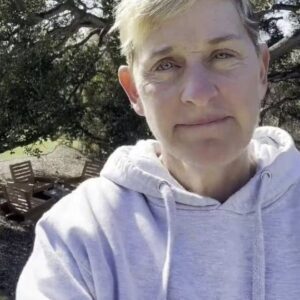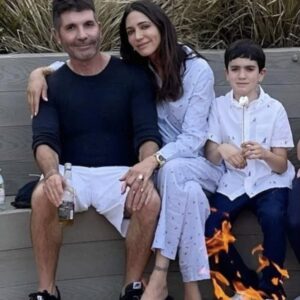But the morning after Dad left—no goodbye, no note, just silence and a half-packed closet—my little brother woke up early, tied his shoes wrong, and tried to make scrambled eggs.
He burned them. We ate them anyway.
That’s how it started.
He became our constant. Always the first to check the locks. Always trying to make Mom laugh, even when her eyes were swollen from crying. He learned how to fold laundry watching YouTube. Fixed a leaky faucet using duct tape and pure attitude.
And every Sunday, he baked something.
Said it helped him think.
This week he was trying banana bread. It was my mom’s favorite, even though she hadn’t had the appetite for anything sweet in a while.
I watched from the hallway as he mashed the bananas with the back of a fork, his little brows furrowed in focus. He still wore that ridiculous superhero apron we got from the dollar store three years ago.
I smiled a little. The house still felt weird without Dad, but somehow, in these tiny ways, it was starting to feel okay.
He slid the loaf pan into the oven, set the timer like he’d seen Mom do a hundred times, and turned around to face me. “Think she’ll eat it this time?”
I shrugged. “Only one way to find out.”
The house filled with the warm, sweet smell of banana bread. We hadn’t smelled anything that comforting in weeks. It reminded me of better days. Days with Christmas music and cozy socks and nobody walking out the door without looking back.
The timer dinged, and he ran over like it was Christmas morning. He grabbed the oven mitts, pulled open the door—and froze.
I saw his face first. The way all the color drained from it.
Then I followed his gaze.
There was something in the oven. Not the bread. Not yet, anyway.
It was tucked behind the loaf pan, barely visible through the heat-glazed glass. A manila envelope, browning at the corners, the edges curling.
My brother didn’t touch it at first. Just stared.
Then, slowly, he reached in with the mitt and pulled it out, setting it on the counter like it might explode.
I moved closer. “What is that?”
He didn’t answer. Just opened it.
Inside was a note. Folded neatly, in handwriting I hadn’t seen in weeks.
Dad’s.
He read it silently at first, lips moving. Then handed it to me.
“To whoever finds this first—I’m sorry. I didn’t know how to say goodbye. I failed. But I left something that might help. Check under the floorboard in the garage. Right side, beneath the toolbox. It’s yours.”
I looked up at my brother. His eyes were big. Hopeful. Confused. Scared.
We didn’t say anything. Just ran.
The garage was cold. Dusty. The kind of place that always made me sneeze. We pulled the toolbox aside, heart pounding in my ears.
My brother dropped to his knees and started knocking on the wooden floor with his knuckles. After a few tries, we heard a hollow thud.
It took a few minutes. But then it popped loose.
Underneath was a small wooden box. Old. Scratched. But locked tight.
There was a second envelope taped to the lid.
He ripped it open and read it out loud this time.
“This is what I had left after I screwed up. I couldn’t take it with me. Maybe this will help more here than wherever I end up. I’m sorry for being a coward. Please take care of your mom. Tell her I loved her. Even when I didn’t know how to show it.”
I blinked hard. My brother just sat there, staring.
Then he pulled the box up and held it in his lap.
It took a minute to find a small padlock key hidden in the envelope. His hands shook when he put it in.
The lock clicked.
Inside… was money.
Stacks of it. Rolled up, wrapped with rubber bands. Tens, twenties, fifties.
We didn’t speak for a full minute.
Eventually, I found my voice. “How much do you think that is?”
He shrugged. “Enough to fix stuff?”
That made me laugh. It sounded stupid and perfect.
We didn’t count it. Not yet.
We just sat there in the garage, surrounded by the smell of banana bread wafting from the house, and didn’t know whether to be happy or angry or sad.
Probably all three.
Later that night, we told Mom.
She didn’t cry.
Not right away.
She just stared at the box, then at the two of us.
“I thought he left with nothing,” she whispered. “I thought he didn’t care.”
We didn’t say anything. We didn’t have to.
That night, we sat around the table—my brother, my mom, and me—and ate the banana bread together. It was too soft in the middle and a little burned on the edges. But it was the best thing I’d tasted in years.
After that, things started to shift.
We didn’t touch the money for a while. It just sat in that wooden box on the highest shelf in the hall closet. But it was there, like a quiet promise. Like maybe things could get better.
And they did.
My brother kept baking every Sunday.
Mom started humming again when she did the dishes.
I picked up an after-school job at the library. Helped with bills. We all pitched in.
Then, one afternoon, maybe six months after we found the box, we came home to find the garage door half open.
Inside stood a man.
Thinner. Paler. But him.
Dad.
He turned when he heard the gravel crunch under our shoes.
My brother froze.
So did I.
Mom stepped forward first. “What are you doing here?”
He looked down. Held up a duffel bag. “I got clean.”
Nobody spoke.
“I was in a program,” he continued. “In Reno. I’ve been there since… since I left.”
I didn’t believe him at first.
But he pulled out a plastic bracelet. A certificate. Even a counselor’s card.
“I know I don’t deserve to ask,” he said, voice cracking. “But I was hoping… to say thank you. For not spending the money. I know you found it.”
Mom stepped closer. “Why hide it like that?”
He looked at my little brother. “Because I didn’t want to use it on myself. I wanted it to go to you. All of you. Even if I couldn’t be part of it.”
Silence hung heavy.
Then, softly, my brother said, “Did you mean it? In the letter?”
Dad nodded.
He stepped forward, and I noticed how slow his movements were. Careful. Like someone learning to walk again.
We let him in.
Not fully. Not yet.
But that night, we shared banana bread again. This time with four chairs around the table.
He didn’t stay.
He didn’t ask to.
Just thanked us. Hugged my brother. Said he’d check in every now and then.
And he did.
Every couple of weeks, he sent a postcard. Always with a drawing or a dumb pun or a joke. Sometimes he even called.
Eventually, we counted the money.
It was almost $17,000.
Enough to catch up on the mortgage. Fix the leaky roof. Even enough to enroll my brother in a baking class that summer.
He wore his superhero apron to the first day.
I couldn’t stop laughing.
Mom cried happy tears for the first time in years when she saw the certificate he brought home.
And you know what?
He’s fifteen now.
Still bakes every Sunday.
But now, he sells his muffins to the local coffee shop down the street. Made a deal with them last year. Calls them “Little Wins.”
Says that’s what life’s about.
Not big, dramatic moments.
Just little wins.
Like a banana bread that doesn’t burn.
Like a man who found the courage to leave—but eventually came back a better version.
Like a ten-year-old boy who stepped up when the world fell apart—and found a new recipe for hope, even in an old, rusty oven.
Life doesn’t always give you what you want.
But sometimes, it gives you what you need—wrapped in pain, tucked behind the banana bread.
And sometimes, that’s even better.
If this story moved you, share it with someone who might need a little hope today. And don’t forget to like it—because even the smallest acts of kindness rise, just like warm bread on a Sunday.





